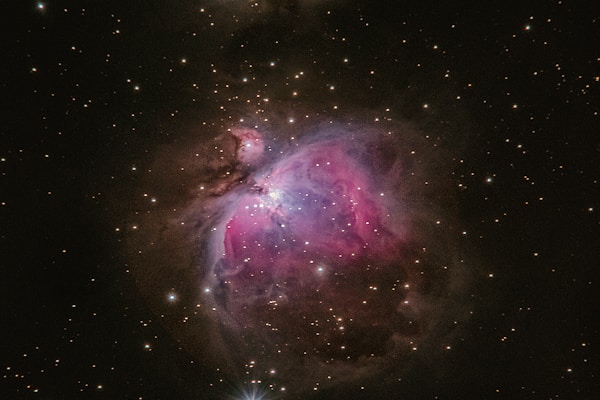
The Empire’s response to the Aldhani heist and other early rebel activities represents one of the most significant strategic blunders in galactic history. What should have been a measured response to isolated incidents of dissent instead became a galaxy-wide crackdown that transformed scattered resistance into a unified rebellion.
The Overreaction Doctrine
The Empire’s approach to dealing with dissent follows a predictable pattern: overwhelming force applied indiscriminately. This doctrine, while effective in the short term, creates long-term problems that the Empire seems incapable of recognizing or addressing.
The mass arrests on Ferrix, the suspension of civil liberties on Coruscant, and the brutal suppression of protests across the galaxy all follow the same logic: if you kill enough people, terrorize enough communities, and destroy enough lives, resistance will cease. But this approach ignores the fundamental reality that oppression breeds resistance, not submission.
The Radicalization Effect
Perhaps the most damaging consequence of the Imperial crackdown is how it radicalizes moderate citizens who might otherwise have remained neutral. The Empire’s inability to distinguish between actual rebels and innocent civilians means that anyone can become a target, transforming law-abiding citizens into potential enemies overnight.
The story of Bix Caleen illustrates this perfectly. A mechanic with no interest in politics, she becomes a target simply because of her association with Cassian Andor. Her torture and imprisonment serve no strategic purpose—they don’t yield actionable intelligence or prevent future attacks. Instead, they create another enemy of the Empire and demonstrate to anyone watching that loyalty offers no protection from Imperial brutality.
The Propaganda Failure
The Empire’s crackdown also represents a massive failure in the propaganda war. Every innocent person arrested, every peaceful protest violently suppressed, and every civil right suspended undermines the Empire’s claim to legitimacy. The image of stormtroopers dragging away shopkeepers and factory workers contradicts the Empire’s narrative of bringing order and stability to the galaxy.
This contradiction is particularly damaging because it’s so visible. The Empire can control the official news networks, but they can’t control what people see with their own eyes. When neighbors disappear in the night and friends are tortured for their associations, the Empire’s propaganda becomes transparently false.
The Intelligence Failure
The crackdown also reveals fundamental flaws in the Empire’s intelligence apparatus. Their inability to distinguish between actual threats and imagined ones leads to the waste of enormous resources on meaningless targets while real rebels slip through their fingers.
The ISB’s focus on tracking down individual rebels rather than understanding the broader political and social conditions that create rebellion represents a classic example of fighting the symptom rather than the disease. Every rebel they arrest is replaced by two more, but the Empire seems incapable of learning from this pattern.
The Unification Effect
Perhaps most importantly, the Empire’s indiscriminate crackdown helps unify disparate rebel groups into a coherent resistance movement. When the Empire treats all dissent as equivalent, it creates common cause between groups that might otherwise have remained separate.
The shared experience of Imperial oppression becomes a binding force that transcends differences in ideology, tactics, or goals. Whether you’re a political moderate like Mon Mothma or a radical like Saw Gerrera, you’re all targets of the same system, and that shared vulnerability creates opportunities for cooperation that wouldn’t have existed otherwise.
The Resource Drain
The crackdown also represents a massive drain on Imperial resources. The personnel, equipment, and administrative overhead required to maintain a galaxy-wide state of emergency diverts resources from more productive uses. The Empire finds itself spending more and more of its energy on internal security rather than external expansion or development.
This resource drain becomes a form of rebel victory in itself. Every stormtrooper assigned to crowd control is a stormtrooper who can’t be used for military operations. Every ISB agent investigating innocent civilians is an agent who can’t be tracking actual rebel activities.
The Moral Corruption
The crackdown also has a corrosive effect on Imperial personnel. The constant violence, the arbitrary arrests, and the culture of fear create an environment where brutality becomes normalized. Good people are corrupted by the system they serve, while those who resist are eliminated or marginalized.
This moral corruption undermines the Empire’s long-term stability by creating a military and bureaucratic apparatus that’s more concerned with maintaining power than with effective governance. The Empire becomes increasingly focused on what it’s against rather than what it’s for.
The Inevitable Backlash
The Empire’s crackdown ultimately fails because it ignores the fundamental reality that people will only tolerate oppression for so long before they resist. The more brutal the oppression, the more desperate the resistance becomes. The Empire’s attempt to crush the rebellion through force only makes it stronger and more determined.
The transformation of Cassian Andor from reluctant participant to committed rebel illustrates this perfectly. The Empire’s actions don’t deter him—they radicalize him. By the end of the first season, he’s not just fighting for personal reasons anymore; he’s fighting because he’s seen what the Empire does to people who resist, and he’s decided he’d rather die fighting than live under such a system.
The Strategic Blindness
The Empire’s response to early rebel activities reveals a fundamental strategic blindness that will ultimately prove fatal. They understand military force, but they don’t understand politics. They know how to destroy, but they don’t know how to build. They can win battles, but they can’t win the peace.
This blindness is perhaps the Empire’s greatest weakness. They’ve created a system that’s so focused on maintaining control that it’s forgotten why control matters in the first place. In their attempt to rule the galaxy, they’ve made it ungovernable.
The Imperial crackdown stands as a cautionary tale about the limits of force and the dangers of overreaction. It reminds us that oppression ultimately creates more problems than it solves, and that the most effective way to defeat an enemy is often to let them defeat themselves.